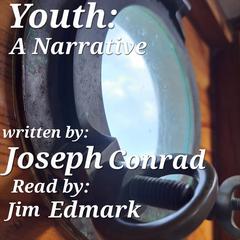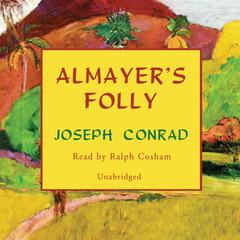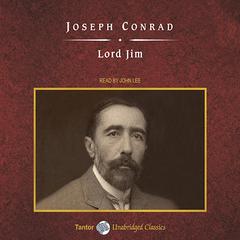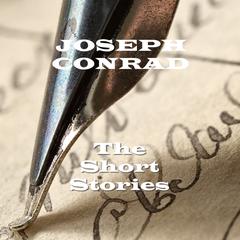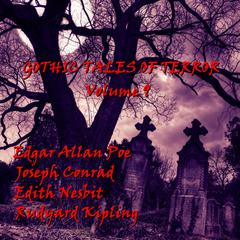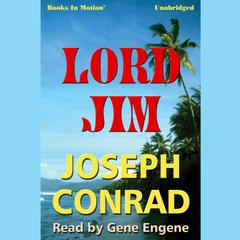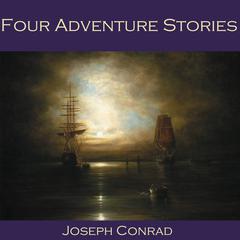 Play Audiobook Sample
Play Audiobook Sample
Under Western Eyes Audiobook
 Play Audiobook Sample
Play Audiobook Sample
Quick Stats About this Audiobook
Total Audiobook Chapters:
Longest Chapter Length:
Shortest Chapter Length:
Average Chapter Length:
Audiobooks by this Author:
Publisher Description
Hailed as one of Joseph Conrad's finest literary achievements, Under Western Eyes tells the story of a young man unwittingly caught in the political turmoil of pre-revolutionary czarist Russia. It begins with a bomb that kills its intended target, a hated Russian minister of police, along with several innocent bystanders. A young student named Razumov hides the perpetrator, who questions his moral strength and integrity.
Set in St. Petersburg amid intrigue and espionage, this novel hauntingly speaks to the broader, timeless question of human responsibility and honor. Conrad said that his intent was to render "the psychology of Russia," a country being driven to anarchy by misguided revolutionaries. This masterwork, published six years before the Russian Revolution, is a chillingly accurate prophecy of what was to come.
Download and start listening now!
"The title refers to the setting/milieu for 4/5 of this great, all but unknown today, Joseph Conrad novel: i.e. Geneva, Switzerland, in 1907. There, Russian conspirators and Russian secret agents are all gathered to either infiltrate and bring down the repressive Tsarist government or infiltrate and bring to grief the conspirators movement. It's one of the ongoing great stupidities of how literature is taught in American universities that people will graduate with honors having read two of Conrad's dopiest and least characteristic stories: Heart of Darkness and The Secret Sharer, thereby missing most of his great writing, i.e the novels Nostromo, The Secret Agent, Victory, and especially Under Western Eyes. But no one since Conrad has done this subject or kind of story better--John LeCarre coming closest. A young Russian student in Moscow has his flat invaded by another student who has just assassinated the head of the secret police with a bomb and is hiding out. Drawn into the ridiculous situation, the student balks at the role he is being forced to play. He goes to his unacknowledged nobleman father and they meet with a dignitary who arranges for the killer to be captured while attempting to escape. Even though the government knows our student was on its side, still he is put under enough surveillance that his prospects for a career are ruined. We meet him six months later in Geneva among the Russian emigre community. The student is now deemed a Hero of the Revolution, despite his true role. He meets with a rich woman funding the revolt and her protege, who wishes to become what Lenin will eventually be. Also various hangers on, including a slob of an assassin who our hero figures out is a double agent. And the betrayed student's beautiful, intelligent sister and grieving mother. All try to draw the student into their plots and the sister into her life, forever. Their machinations and ideas and ideals are wonderfully done, and each character is gorgeously laid out and developed. I'm only amazed this story hasn't been turned into a play or film, as the inner and outer drama is intense and real. Some critic called this the greatest Russian novel written by someone not Russian and I would agree. It's a masterpiece. Read it."
— Felice (5 out of 5 stars)
Quotes
-
“A century after its publication, Under Western Eyes is as compelling and as relevant to our own age as it was to an earlier age of political terrorism.”
— Sanford Schwartz, Pennsylvania State University -
“One does not know what deserves more admiration: the amazing subject, the fitting together, the boldness of so difficult an undertaking, the patience in the development of the story, [or] the complete understanding and exhausting of the subject.”
— André Gide -
“Under Wester Eyes is written with that intensity of vision, that complete adsorption in and by the subject, and that astonishing mastery of the subtleties of languange which have ever distinguished its author’s best work...Mr. Conrad has given us an able and convincing study of a soul in the cruel, remorseless grip of fate. He has never done anything better.”
— Morning Post, 1911 -
“Keen and merciless in exposure and meticulously searching in analysis, Under Western Eyes is a psychologic study or remarkable penetration, and, as a novel, is entitled to rank with the best that Mr. Joseph Conrad has given us...The book startles one by its amazing truth and by the intimate knowledge of the human heart that reveals in its varied and masterly characterisation.”
— Pall Mall Gazette, 1911 -
“The whole is a work which must rank with the masterpieces of English fiction.”
— Westminster Gazette, 1911
Under Western Eyes Listener Reviews
-
" Impressive. I am always a bit in awe of Conrad and do not pick up one of his novels easily as they are, in my eyes, so very complicated. This one is complicated too but somehow I was hooked from the first sentence onwards. It is a thoroughly intense and magnificent book which moved me very much. "
— Renée, 2/10/2014 -
" My favorite Conrad book. Loved the story and the characters - very well written. "
— Nadia, 1/25/2014 -
" love me some j-rad. this was even better than the secret agent. "
— Lindsey, 1/18/2014 -
" Every time I read Conrad I'm struck by how much he reminds me of Dostoevsky. Even more so in this book since it's about a Russian revolutionary who murders a government official. The story is not so much about the revolutionary but the person he turns to to help him escape and the aftermath. "
— Kevin, 12/14/2013 -
" Excellent work! Actually surreal at points as one follows the narrator through the story. Definitely worth reading. "
— Joshua, 11/15/2013 -
" not his best - but a decent stab at the russian novella. The mannerism of that style was toned down a bit- then again - i didn't really care all too much about the protagonists. The action was extremely well done though. "
— Aaron, 10/13/2013 -
" favorite Conrad book. treat yourself. "
— Steph, 10/4/2013 -
" A beautiful examination of the 'Russian soul' question and why perhaps Russia can never be a democracy. There is a passage in here contrasting democratic Switzerland with Russia, which I think may be the basis for Orson Welles' famed "cuckoo clock" speech. "
— Erik, 7/16/2013 -
" Conrad once more exploring the ethical/ spiritual crossroads of a human being driven to betrayal. Another example of his story- in-story method. "
— Ross, 6/20/2013 -
" One of the best novels I've read in recent years -- rough, powerful, strange, sometimes very beautiful. "
— Gabriella, 4/19/2013 -
" If you've been forced to read Heart of Darkness along your way, don't let it scare you off from this Conrad book. Surprisingly readable and engaging. "
— Dawn, 12/30/2012 -
" Gets a bit ragged toward the end, but an amazingly prophetic novel, much like Dostoevsky's Demons. "
— Steve, 10/9/2012 -
" It took me a while to get into it, but it's a pretty interesting portrayal of political idealism, cynicism and betrayal. "
— Landismom, 8/11/2012 -
" Deep and moving book with an exceptionally crazy narrative style. However, it sticks at some points and gets lost in translation because of the multiple unreliable narrators. However, some of the paragraphs in this book are difficult to beat in terms of beauty or truth. "
— Robert, 4/14/2012 -
" Good book, but need to be in the mood to read something heavy. I would recommend it. "
— Jamie, 8/4/2011 -
" Early novelistic depiction of a nihilistic militant, plus some imperialist spiritualism. "
— Daniel, 5/25/2011 -
" Tough luck for life. "
— David, 4/22/2011 -
" Really enjoyed and can see how it relates to Crime and Punishment. "
— Deanne, 4/19/2011 -
" Penetrating...dripping with cynicism and scorn toward radicals and reactionaries alike. At times a moving account of the "weary work" that is self-justification. "
— Brian, 4/10/2011 -
" Conrad's response to Dostoevsky is probably one of his least sophosticated stories that I've read. It comes across as more of a polemic at times. It's worth trying out, but certainly not a good starting point for future Conrad fans. "
— Jason, 6/7/2010 -
" Conrad's version of Crime and Punishment. For me, it confirms he can't maintain tension for more than a few pages without someone acting incomprehensibly. "
— Paul, 5/10/2010 -
" Gets a bit ragged toward the end, but an amazingly prophetic novel, much like Dostoevsky's Demons. "
— Steve, 4/30/2010 -
" V.S. Naipaul couldn't have put it better when describing the merit of this book (paraphrased): The novel begins with the promise of Dostoevskian themes, but trails off into analysis. <br/> <br/>But those first one-hundred pages: six stars. Amazing... "
— Vernon, 3/24/2010 -
" favorite Conrad book. treat yourself. "
— Steph, 12/30/2009 -
" It took me a while to get into it, but it's a pretty interesting portrayal of political idealism, cynicism and betrayal. "
— Landismom, 8/1/2009 -
" Every time I read Conrad I'm struck by how much he reminds me of Dostoevsky. Even more so in this book since it's about a Russian revolutionary who murders a government official. The story is not so much about the revolutionary but the person he turns to to help him escape and the aftermath. "
— Kevin, 6/12/2009
About Joseph Conrad
Joseph Conrad (Józef Teodor Konrad Nalecz Korzeniowski) (1857–1924) was born in Ukraine. Raised by an uncle after the death of his parents, he educated himself by reading widely in Polish and French. At age twenty-one he began a long career sailing the seas on French merchant vessels, after which he went to London and began writing, using the romance and adventure of his own life for his incomparable sea novels.
About Geoffrey Howard
Geoffrey Howard (a.k.a. Ralph Cosham) was a stage actor and an award-winning narrator. He recorded more than 100 audiobooks in his lifetime and won the prestigious Audio Award for Best Narration and several AudioFile Earphones Awards.





